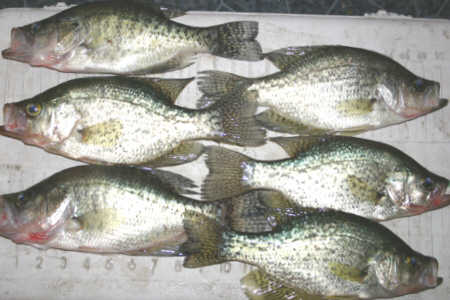In fifty years there will be no fish left in the sea, if the current trend continues. This is according to a recent study

"The way we use the oceans is that we estimate that there will always be another species that can be exploited after we have exterminated the current species," says the lead researcher on the study, Boris Worm of Dalhousie University in Canada. "There is a limited number of fish, and we have eliminated about a third of it, and we are going to consume the rest as well," Worm said in an interview with the BBC website.
Steve Plumbi, from Stanford University in California, one of the other scientists participating in the project added: "If we don't change the way we manage all the species of the ocean together, as an active ecosystem, this will be the last century in which we can enjoy wild seafood."
Scientists from many institutions from Europe and the Americas participated in the species study, who collected four different series of data. They checked the fishing records and these provided data on the decline in fish. In 2003, 29% of the high seas fisheries reached a state of collapse, with the total catch being ten percent below the normal catch. Bigger ships, better nets, and new technology for monitoring the movement of fish did not bring about the additional return in the amount of fish, in fact, there was a 13% decrease in the amount of fish caught between 1994 and 2003.
The historical data collected from the coastal areas of North America, Europe and Australia, also show a downward trend in the fishing spoils, together with a decrease in the biological diversity of the species, not only of fish but also of other species of marine creatures that appear on man's plate. Areas where biodiversity decreases are also prone to beach closures for fishing and bathing, algae blooms, and beach flooding.
Experiments carried out in closed and relatively small sonar systems showed that the reduction in biological diversity also tends to bring with it a reduction in the size and stability of the local fish stock. This means that the loss of biodiversity leads to a decrease in the quantities of fish found in studies of the large numbers.
The last part of the experiment came from data from areas where fishing was banned or severely restricted. These data proved that the protection restores biodiversity to the area, and restores the population of fish that reach it from the outside.
"The image I use to explain why biodiversity is so powerful is that of marine life as a house of cards," Dr Worm said.
"All the parts are complementary into one whole. If one part is moved, especially at the bottom, it affects everything above and threatens the entire structure. We learn that in the oceans, the species are related to each other in a strong and close bond, much more than on land.
What the study did not do was link the damage to specific activities such as overfishing, pollution or habitat destruction. Instead, Ha paints a picture of cumulative damage along the entire front. Even so, an important implication of the research is that the oceans must be protected. But the expansion of protection is not the only issue. According to Carl Gustaf Lundin, Director of the Global Marine Program of the IUCN - the World Conservation Organization. "The advantages of marine protection areas were very clear in several cases. There is no doubt that protected areas lead to much more fish and to bigger fish and they are less vulnerable." said. "However, there must also be good management of the marine parks and fisheries. It is clear that fishing must not harm the ecosystem, and throwing nets down to the bottom is an excellent example of something that harms the ecosystem."
However, the concept of protecting fish stocks by expanding biodiversity is a logical step, he said. "It's very simple, we must protect biological diversity and this will even pay off financially thanks to the increase in fishing quantities."
Fish protection requires politicians to act on scientific advice - something that, according to Boris Worm, is lacking in Europe, a place where politicians have ignored the demand to stop cod (Canadian) fishing in the North Sea year after year. Without a fishing ban, the scientists fear that the cod in the North Sea will follow the code of eastern Canada - to total elimination. "I am amazed, this is something completely irrational" he said.
"The scientists are expressing concern, and nothing is moving, this is a sad example, and what happened in Canada should be a warning sign, because once the system collapses, it no longer returns to normal." Concluded.

15 תגובות
For the project, this is the reality, wake up, I'm already awake but we all need to wake up, humans in my opinion are a cruel and stupid species with a self-destruction mechanism,
If I were the one pulling the strings, this is not how I would paint our suffocated and screwed up world.
The definition is very strange. If there are no fish in the sea there will be a serious ecological crisis that can wipe out the world as a whole (meaning the people), there is too much scaremongering on the site. I'm sorry to say.
"Goodbye and thank you for the fish" - I loved it
There was peace and thanks for the fish.